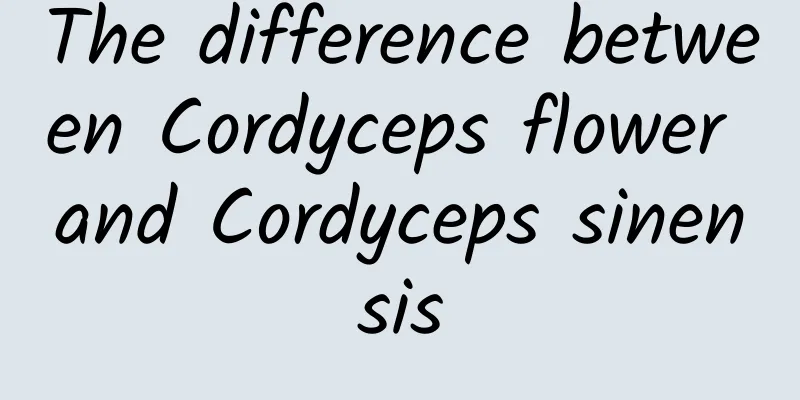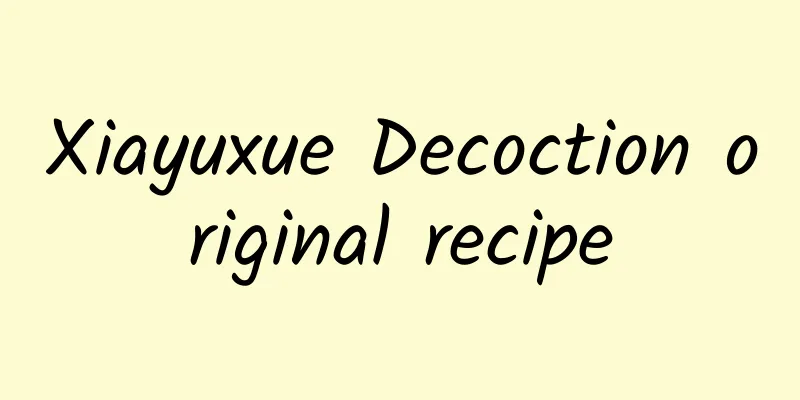The efficacy and function of Herba Lycoris radiatae

|
As people's living standards improve, they pay more attention to health preservation. Many people know that the Chinese medicine Herba Lycopodii is good for the body and can treat many diseases. Let’s learn about it today. [Source] Medicinal material source: the whole herb of Melastoma scabra. [Original form] Small shrub. The lower part is often procumbent, with creeping stems and roots at each node. The ascending part is about 20 cm high, cylindrical, densely covered with small lenticels, branched or unbranched, and the branchlets are covered with fine soft hairs and sparse glandular hairs, slightly quadrangular. In each pair of leaves on the same node, one is larger and opposite; petiole 6-17mm long, pubescent; leaf blade hard papery or slightly thick, broadly ovate to broadly elliptic, sometimes the lower leaf is lanceolate-ovate, apex acute or obtuse, base obtuse or rounded, 5-11cm long, 4-8cm wide, entire or with inconspicuous fine shallow serrations, tooth apex with prickles, 5-base veins, leaf surface pubescent and sparse prickles when young, later pubescent, basal vein slightly concave, lateral veins slightly raised or inconspicuous, dorsal basal vein raised, sparse prickles, lateral veins slightly raised, occasionally with 1-2 prickles. The inflorescence is corymbose or compact umbel, terminal or 3-5 inflorescences born on the upper part of the plant, 3.5-6cm long, densely pubescent; bracts fall off early, pedicels about 6mm long, pubescent; calyx campanulate-funnel-shaped, tube about 3mm long, covered with sparse glandular hairs, quadrangular, lobes short and broad triangular, apex pointed, less than 1mm long; petals red, oblong to elliptic-oblong, apex short and acute, slightly oblique, about 6mm long, about 4.5mm wide; stamens are nearly equal in length, without tubercles at the base of anthers, connectives extend downwards in short spurs, the longer ones are about 12.5mm long, the anthers are about 6mm long, the shorter ones are about 10.5mm long, the anthers are about 5mm long; ovary is nearly spherical, apex truncate, discoid, 4-lobed. The capsule is cup-shaped, truncate at the tip, and obtusely quadrangular; the persistent calyx is the same shape as the fruit, with the crown slightly exposed at the tip, covered with sparse spines, 6mm long and 4.5mm in diameter. The flowering period is around June, and the fruiting period is from August to November. [Habitat distribution] Ecological environment: in valleys at an altitude of 700-900m, under forests on hillsides, or on shady and damp roadsides, beside water, and between rock crevices. 【Nature and flavor】 Bitter; Cool 【Functions and indications】 Clears away heat and promotes diuresis. Mainly used for damp-heat jaundice; edema and swelling [Usage and Dosage] For oral use: decoction, 15-30g. 【Excerpt】 Chinese Materia Medica Through the introduction in this article, we can learn some relevant knowledge about the herb. Whether from the perspective of food health or traditional Chinese medicine, the role of Scutellaria baicalensis cannot be underestimated. |
<<: The efficacy and function of Pteris pubescens
>>: The efficacy and function of Selaginella
Recommend
The efficacy and function of Aconitum roundleaf
Round-leaf Aconitum is a common Chinese medicine ...
Chinese Medicine Guan Zhong
The root of the raw Chinese medicinal material is...
The efficacy and function of purple back geranium root
Only when we understand the main ingredients of a...
Small but strong convection, how difficult is it to accurately report it?
Produced by: Science Popularization China Author:...
The efficacy and function of male fish
Male fish is a very good medicinal ingredient. In...
The efficacy and function of Kunming Du La
We can often see Kunming Du La in our daily life,...
The efficacy and function of Hubei Begonia
Hubei Begonia is a relatively familiar traditiona...
Why do our fingers or toes get wrinkled after being in water for a while?
If the hairless skin on a person's fingers, t...
Dandelion can not only treat liver disease? There are also these wonderful uses
Dandelion is also called yellow flowered dandelio...
Quarantined after receiving a phone call? Beware of new scams!
The epidemic continues in various places This gav...
A review of the stock market performance of global travel booking websites in 2013
2013 was an extraordinary year for online travel ...
Chinese pine: a symbol of Chinese character
Conifers are the backbone of the forest ecosystem...
One, two, three, four, five, six…Why is the honeycomb hexagonal?
The explanation we hear most often is that bees a...
The efficacy and function of Xing'an Duhuo
Xing'an Duhuo is a very common Chinese medici...
The efficacy and function of the chicken
The bent-headed chicken has the effects of reliev...









